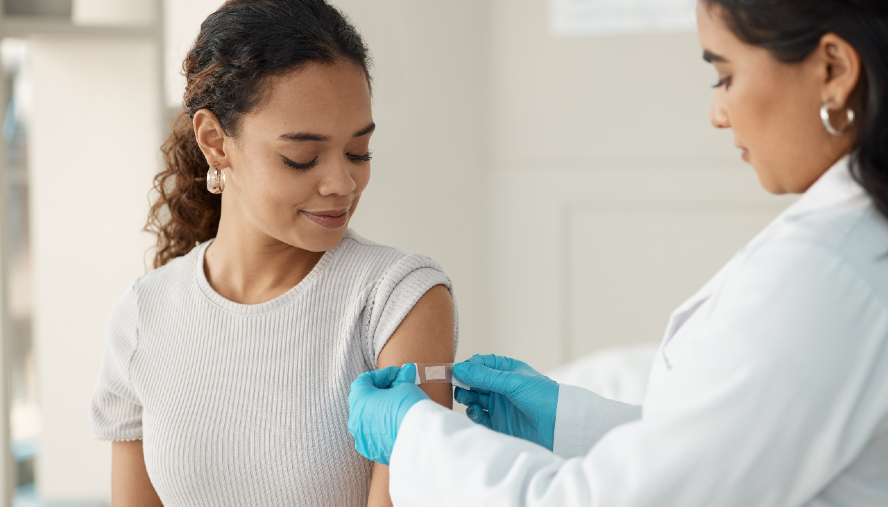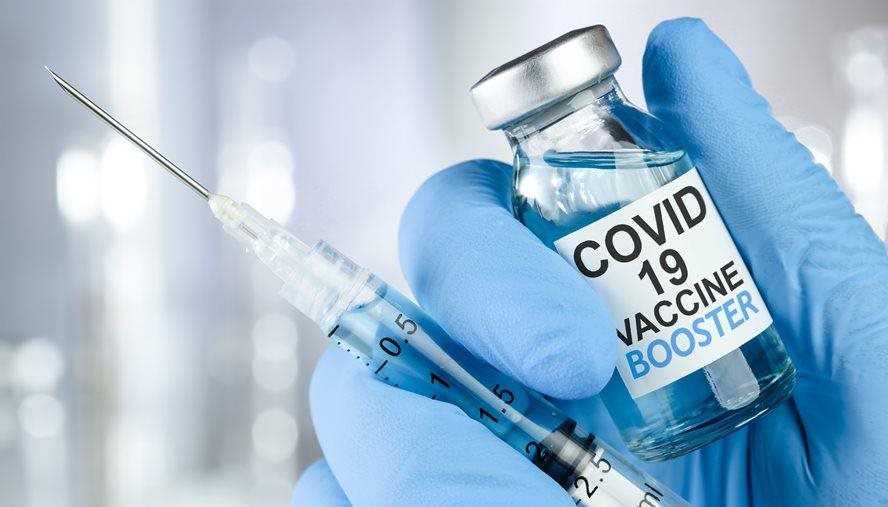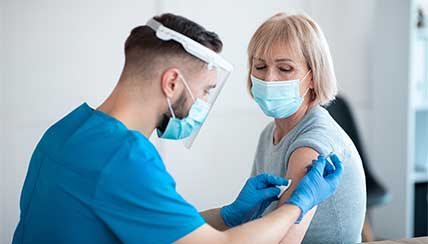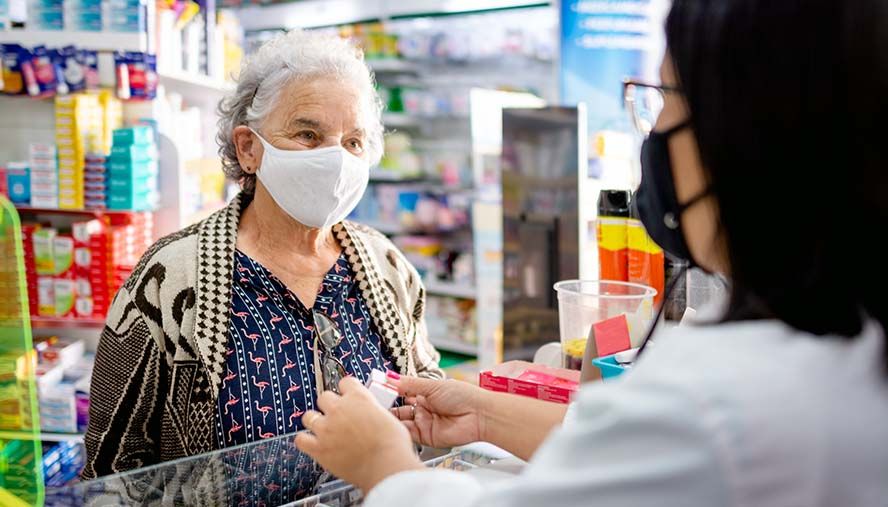Two New “COVID Pills” Receive Emergency Use Authorization
Reviewed by: Charles Daley, MD, chief of the Division of Mycobacterial & Respiratory Infections, National Jewish Health
January 5, 2022
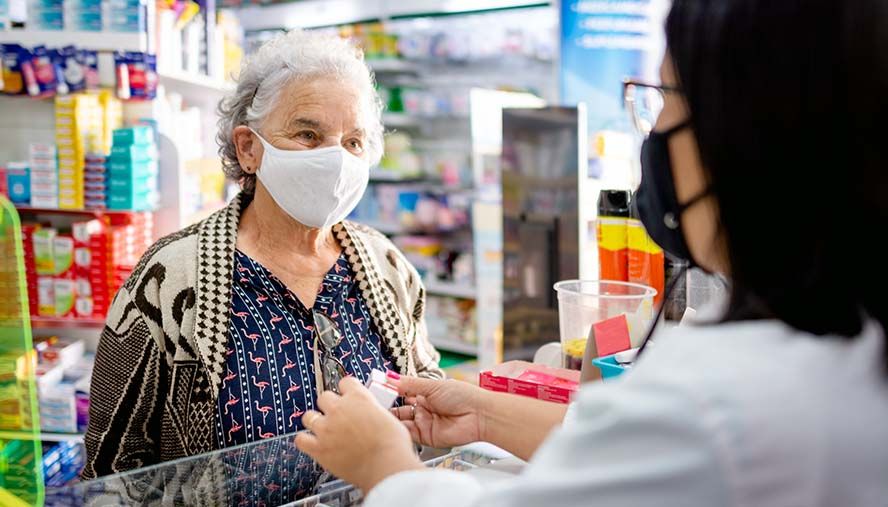
Two new oral medications, or “COVID pills,” that promise to reduce hospitalizations and deaths from COVID-19 have received Emergency Use Authorization (EUA) from the U.S. Food and Drug Administration (FDA). These medications are the first pills to be authorized for non-hospitalized patients with mild to moderate COVID-19. Initially, the treatments are for individuals at high risk of developing severe illness, which includes the elderly and those with chronic conditions, such as diabetes, hypertension or obesity.
“They were highly effective and safe, impressively so,” said Charles Daley, MD, chief of the Division of Mycobacterial & Respiratory Infections at National Jewish Health. “But it may take some time before they are widely available.”
“If and when these medications become affordable and widely available, they could be game changers for the pandemic,” said Ken Lyn-Kew, MD, a critical care physician at National Jewish Health. “They will save lives and reduce strain on hospitals, emergency rooms and intensive care units, which are now stretched to the breaking point.
“They will save lives and reduce strain on hospitals, emergency rooms and intensive care units, which are now stretched to the breaking point.”
Dr. Ken Lyn-Kew, MD, Critical Care
What is the “COVID pill?”
There are two new oral medications for treatment of COVID-19:
Pfizer’s novel antiviral, called nirmatrelvir, known as a protease inhibitor, blocks an enzyme the virus needs to replicate. It is taken in combination with another established protease inhibitor, ritonavir, which has long been used to treat HIV. Pfizer’s combination treatment is called Paxlovid.
Merck and Ridgeback Biotherapeutics jointly developed a novel antiviral treatment called molnupiravir, which is a protein known as a ribonucleoside analog. This protein, a fake piece of genetic material, is incorporated into viruses as they reproduce, making them non-functional.
What makes these medications different?
Since the new medications are pills, they can be taken at home and are more effective than currently available medications. Currently, the only treatments available for mild to moderate COVID-19 are monoclonal antibodies, which must be given via infusion or subcutaneous injection in a health care facility.
Two of the three authorized monoclonal antibodies (bamlanivimab and etesivimab) do not appear to be effective against the Omicron variant. A third authorized monoclonal antibody, sotrovimab, appears more effective against Omicron, but is in very short supply.
How do I get the medications?
Patients 12 years of age and older can get a prescription for Paxlovid™ from their doctors if they have proof of a positive COVID-19 test and are at high risk for developing severe disease. For Merck’s molnupiravir, high-risk patients must be 18 years and older. Patients at high risk are the elderly and those with underlying chronic conditions such as diabetes, hypertension or obesity.
Supply of both medications will be limited in the first months of 2022 with both companies distributing to state health departments, which will then distribute medications to pharmacies and health care facilities.
When will I be able to get the COVID pills?
Supplies of the COVID pills will be extremely limited in early 2022. The federal government planned to distribute 65,000 doses of Paxlovid and 3000,000 doses of molnupiravir to state and territorial health departments in late December 2021 or early January 2022. State and territorial health departments will allocate doses to individual pharmacies and health care facilities. Another 200,000 doses of Paxlovid are expected to become available in January 2022.
What is the dosage?
Both medications should be taken within five days of the first COVID-10 symptoms. Patients using Merck’s molnupiravir will take four pills twice a day for five days. Pfizer’s pills are taken three at a time twice a day for five days.
How effective are the treatments?
In a clinical trial of 1,379 unvaccinated COVID-19 patients at high risk for severe disease, Pfizer’s Paxlovid reduced hospitalization or death by 88%. None of the 697 infected, unvaccinated patients taking Paxlovid died. Nine of the 682 patients of those receiving a placebo were hospitalized with nine deaths. Interim results of a study among standard and high-risk COVID-19 patients showed a 70% reduction in hospitalization and no deaths.
In a clinical trial of 1,433 unvaccinated COVID-19 patients with at least one other medical condition that put them at high risk for severe disease, Merck’s molnupiravir reduced hospitalization or death by 30%. The absolute risk of hospitalization or death from COVID-19 dropped from 9.7% for those taking the placebo to 6.8% for those taking molnupiravir. One of the 709 COVID-19 patients taking molnupiravir died. Nine of the 609 patients taking the placebo died.
What are the side effects of the medications?
In clinical trials, side effects of Paxlovid have generally been mild to moderate. They include altered or impaired sense of taste, diarrhea, increased blood pressure, and myalgia (muscle aches). Two percent of patients taking Paxlovid quit the clinical trials due to side effects, while 4% in the placebo group quit.
Liver problems have occurred in patients receiving ritonavir, part of the Paxlovid combination treatment. Paxlovid is not recommended for patients with severe kidney problems, and a different dose is needed for patients with moderate kidney problems.
Possible side effects of molnupiravir include diarrhea, nausea, and dizziness. There are concerns about the effect of molnupiravir on developing fetuses. Thus, pregnant women are advised against using molnupiravir. Lactating mothers are advised to cease breast feeding during treatment and for four days after the last dose. Both men and women are advised to use reliable birth control during treatment. Women are advised to continue using reliable birth control for four days after treatment, and men are advised to continue the use for at least three months after treatment.
Are the pills effective against the Omicron variant?
Most experts believe the pills will be effective against the Omicron variant. The pills attack proteins less likely to mutate than the spike protein, which is the target of vaccines and central to COVID-19 infectiousness. Pfizer and Merck have reported that laboratory studies indicate that their medications are effective against the Omicron variant.
How much do they cost?
Retail prices have not been set for either medication. The federal government has contracted with makers of both medications to purchase millions of doses at prices ranging from about $500 to $700 per dose. Government subsidies and insurance coverage may reduce the price of the medications for patients.
Do these medications mean I don’t need a vaccine?
“Absolutely not,” said Dr. Lyn-Kew. “We need to use all the tools available to fight this pandemic. A vaccine can prevent infection. The pill does not prevent infection; it just reduces the chances of severe disease.”
“The pill does not prevent transmission of the disease,” said Dr. Daley. “As long as we have ongoing transmission of the disease, new variants will develop. Vaccines are the best tool to prevent ongoing transmission.”
| The information on our website is medically reviewed and accurate at the time of publication. Due to the changing nature of the COVID-19 pandemic, information may have since changed. CDC.gov and your state’s health department may offer additional guidance. |

